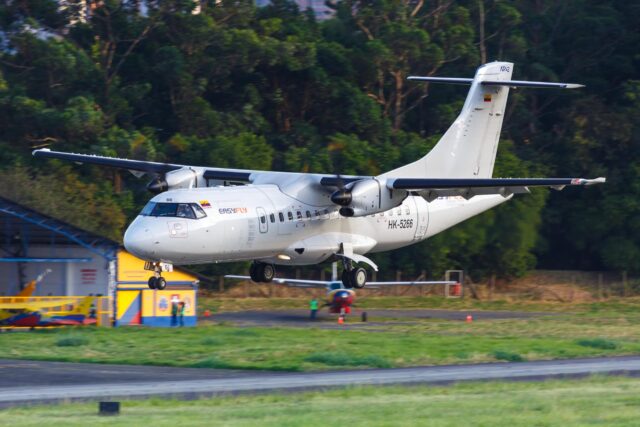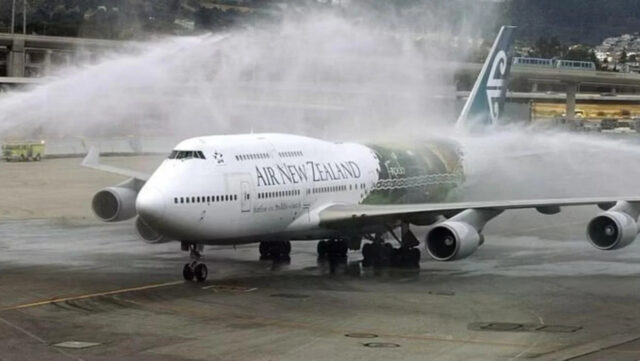“Zero-Dollar Paychecks”: US Air Traffic Controllers stress as Government shutdown hits home

October 28, 2025

As the US government shutdown drags into another week, the nation’s air traffic controllers have received earnings statements showing $0.00, and the human cost is beginning to mount.
Across the country, over 10,000 controllers are working without pay, managing one of the world’s busiest airspaces while worrying about mortgages, childcare, and grocery bills.
Air traffic controller families under pressure
Controllers typically work long shifts — often six-day weeks and mandatory overtime — to keep the national airspace running despite chronic understaffing. Missing a paycheck adds a financial strain to an already demanding environment.

Joel Ortiz, NATCA’s Western Pacific regional vice president, told KJZZ, Phoenix, that the stress is becoming palpable.
“There’s a lot of concern, a lot of fear. I think concern is the biggest thing right now,” he said. “You know, it would be one thing if they knew they were going to miss one paycheck, but they’ll get that paycheck back to you two weeks later. They have no idea when they’re going to get paid.
“And for example, those controllers that have children that are in childcare, some of them are having to miss work because the childcare provider isn’t taking IOUs.”
NATCA members speak out about the stress of facing zero-dollar paychecks
The National Air Traffic Controllers Association (NATCA), which represents the profession’s roughly 20,000 members, has warned that the situation adds stress to a workforce that is required to perform vital duties.
In a video released by the union on October 18, titled “Members Speak About Effects of Government Shutdown on Their Families,” controllers described the emotional toll of keeping skies safe while earning nothing.
Natelie Chappell, Potomac TRACON, PCT, said, “My husband and I just had our first child this last year, so add in the financial stress of not knowing when you’re gonna get paid next, and you can imagine the immense pressure that our family is feeling right now.”

Tom Lefebvre, Boston Centre, ZBW, also expressed childcare concerns. “I’m the sole income in a house with two children. Our biggest challenge right now is continuing my child’s medical therapies during our prolonged shutdown,” he said.
Brandon Esquer, Phoenix TRACON, P50, shared how the family’s lack of income is affecting his child. “My daughter’s currently offering to assist from her part-time job to help pay for bills, groceries, et cetera, instead of focusing on school and being a kid,” he said.
Nicole Wysong, Engineer/Northwest Mountain Region, ENM, tallied up the costs of working without wages. “Car payments, car insurance, house bills—how do I do all of that? And on top of it being a single family income,” she said.
Sarah Winjum, Des Moines Tower, DSM, said both she and her husband work as air traffic controllers, leaving the family with two wage-earners who face zero-dollar paychecks this month. “We have five children, one with an autoimmune disease that requires daily treatment,” she said. “A partial paycheck, or no paycheck at all, could detrimentally impact our ability to provide for her medical needs.”
Zero-dollar paychecks impact Air Traffic Controller morale
Transportation Secretary Sean Duffy has acknowledged the tension.
As reported by AP News, Duffy said at the beginning of the shutdown, “Now what they think about as they’re controlling our airspace is, how am I going to pay my mortgage? How do I make my car payment? I have a couple of kids at home. How do I put food on the table? I’m working six days a week. Do I have to take a second job and drive Uber when I’m already exhausted from doing a job that’s already stressful, to think about how I can make extra money because the government may not provide me a paycheck?”
Although the FAA insists that the national airspace remains safe, delays have spiked — with flight disruptions attributed to staffing shortages climbing from about 5% before the shutdown to over 50% since the shutdown began.
Controllers are still reporting for duty
However, despite the financial uncertainty, NATCA members continue reporting for duty, even as their personal finances deteriorate.
In an appearance on KOLD-TV in Tucson, Arizona, Ortiz said, “Inadvertently or intentionally, we are pawns in this system, and controllers have to continue to go up and show up to work every single day. Despite the partisan politics that go on behind us, we cannot control that. We still need to show up and do our job. That is why we are hired to do that job even during these uncertain times, to not put the spotlight on our profession because inevitably that’s what’s going to happen.”
While acknowledging that “the stress of the unknown” is weighing on the nation’s air traffic controllers, Ortiz said the flying public should know “that all the controllers still continue to go to work. They show up every day. They’re going to ensure that everybody’s flights depart and arrive at their destinations and all the cargo departs [and arrives at its] destinations safely.”
The US faces a widening air traffic controller gap
The missed paychecks come amid a broader workforce crisis: the FAA has been struggling for years to recruit and train enough controllers to meet demand. The US has yet to address a staffing shortage of 3,500 fully certified controllers. The current shutdown threatens to deepen that gap if recruits abandon training or qualified controllers leave for more stable work.

One trainee who appeared on the NATCA video, Trisha Hurley, Washington Centre, ZDC, said, “I am a single mom of two children, ages four and three, and I’m currently a trainee, and we live in an area that has an extremely high cost of living. My daycare payments and rent payments alone pretty much take up an entire month’s worth of pay.”
Duffy also warned House Republicans during a press conference on Capitol Hill that the threat of a lack of income is already impacting trainees. “I’m getting word now from Oklahoma City, where I have young air traffic controller students who are now telling me, ‘What the hell am I doing? Why am I going to take this job?’” he said. “They’re thinking about leaving the academy, smart young men and women, because they don’t want to work for a system that won’t pay them.”
Featured Image: Real_life | stock.adobe.com
















